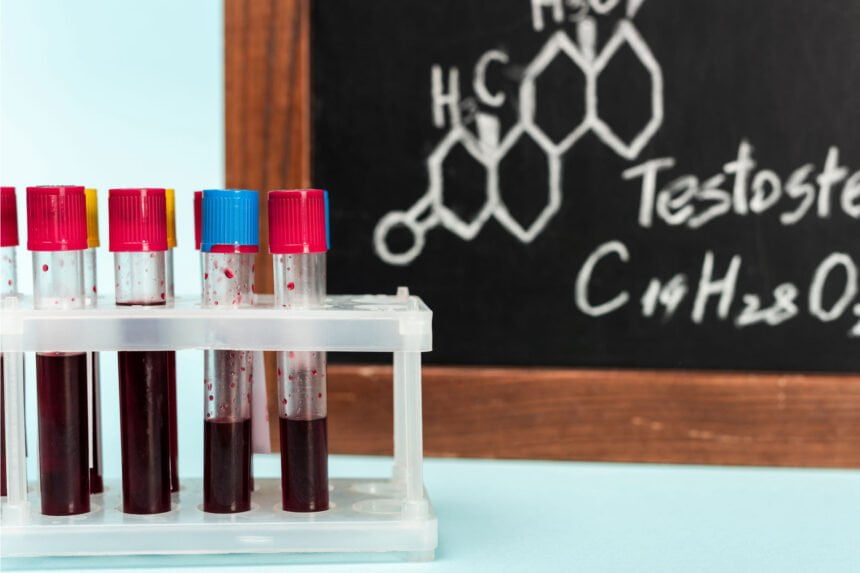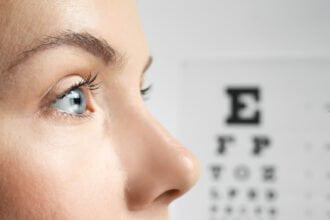Testosterone replacement therapy (TRT) is a treatment option for men experiencing andropause, a condition characterized by a decline in testosterone levels. TRT involves the administration of testosterone to help restore hormone levels to normal ranges and alleviate symptoms associated with hormonal decline. While TRT has been a controversial topic in the medical community, recent research has shown promising results for its benefits in treating andropause.
- Understanding Andropause and Hormonal Decline
- The Role of Testosterone in Male Health
- What is Testosterone Replacement Therapy (TRT)
- Methods of Administering TRT
- The Benefits of TRT for Andropause and Hormonal Decline
- Potential Risks and Side Effects of TRT
- Costs and Misconceptions about TRT
- Final Words on Andropause and TRT
One of the key benefits of Testosterone Replacement Therapy (TRT) for men experiencing andropause and hormonal decline is its ability to improve overall quality of life. By restoring testosterone levels to a more optimal range, TRT can help alleviate symptoms such as fatigue, low libido, and mood swings, allowing individuals to feel more energized, focused, and emotionally stable. Furthermore, TRT has been shown to promote muscle growth, increase bone density, and improve cardiovascular health in men suffering from hormonal imbalances.
Another important advantage of TRT in addressing andropause and hormonal decline is its effects on cognitive function. Studies have suggested that maintaining appropriate testosterone levels through bio hormone treatments can help enhance memory, concentration, and mental clarity in aging men. By supporting brain health through hormonal balance, TRT may contribute to improved cognitive performance and overall well-being as individuals navigate the challenges associated with aging-related hormonal changes.
Understanding Andropause and Hormonal Decline
Andropause, also known as male menopause, is a natural process that occurs in older men as they age. It is marked by a decline in hormone levels, particularly testosterone, which can lead to a range of symptoms and health issues. Testosterone levels decrease by approximately 1% per year after age 30, and by the time men reach their 60s, approximately 20% of them have biochemical evidence of androgen deficiency, increasing to 50% of men in their eighth decade of life.
The hypothalamic-pituitary-gonadal axis regulates testosterone production in men. The hypothalamus produces gonadotropin-releasing hormone (GnRH), which stimulates the pituitary gland to produce luteinizing hormone (LH) and follicle-stimulating hormone (FSH). LH then stimulates the Leydig cells in the testes to produce testosterone. As men age, the hypothalamus and pituitary gland become less responsive to GnRH, resulting in decreased LH and testosterone production.
Symptoms of low testosterone levels in men include decreased libido, erectile dysfunction, decreased muscle mass and strength, increased body fat, decreased bone density, and decreased energy and vitality. These symptoms can significantly impact a man’s quality of life and increase his risk of developing other health issues, such as cardiovascular disease and diabetes.
Diagnosis of androgen deficiency is based on the presence of symptoms suggestive of testosterone deficiency, such as loss of libido, morning penile erection, and erectile dysfunction, and demonstration of low testosterone levels. Treatment options for androgen deficiency include testosterone replacement therapy (TRT), lifestyle modifications, and other medications.
TRT has been shown to improve symptoms of androgen deficiency, including sexual function, muscle mass and strength, bone density, and energy and vitality. However, it is important to note that TRT is not without risks and should only be prescribed by a healthcare provider after a thorough evaluation of the patient’s individual health status and risk factors.
The Role of Testosterone in Male Health
Testosterone is a hormone that plays a crucial role in male health. It is responsible for various physiological functions such as regulating sex drive, sexual function, muscle mass, bone density, energy levels, mood, and libido. Testosterone levels peak during adolescence and early adulthood, then gradually decline with age.
Low testosterone levels, a condition known as hypogonadism, can lead to a range of symptoms, including fatigue, decreased libido, erectile dysfunction, reduced muscle mass and strength, and decreased bone density.
Testosterone replacement therapy (TRT) is a treatment option for men with low testosterone levels. TRT involves the administration of testosterone to increase testosterone levels to a normal range. Benefits of TRT include improved sexual function, increased lean muscle mass and strength, improved mood and cognitive function, and a possible reduction in frailty and osteoporosis.
TRT has been shown to be effective in improving sexual function in men with low testosterone levels. Studies have also shown that TRT can increase lean muscle mass and strength, which can lead to an improvement in physical function. TRT can also improve mood and cognitive function, which can lead to an improvement in quality of life.
However, TRT is not without risks. Possible risks of TRT include an increased risk of cardiovascular disease, prostate cancer, and sleep apnea. It is important for men considering TRT to discuss the potential risks and benefits with their healthcare provider.
What is Testosterone Replacement Therapy (TRT)
Testosterone Replacement Therapy (TRT) is a medical treatment used to increase testosterone levels in men who have low levels of the hormone due to aging or other medical conditions. Testosterone is a hormone that is responsible for the development of male characteristics, such as muscle mass, bone density, and body hair. It also plays a role in sex drive, mood, and energy levels.
TRT involves the use of synthetic testosterone, which can be administered in several different forms, including injections, patches, gels, and pellets. The goal of TRT is to restore testosterone levels to a normal range, which can help alleviate symptoms associated with low testosterone, such as decreased sex drive, fatigue, depression, and loss of muscle mass.
Today, acquiring TRT has become more accessible than ever, with many clinics offering testosterone replacement therapies. What’s more, for added convenience, testosterone can now be prescribed online via telemedicine. This telehealth approach allows patients to seamlessly receive treatment, making the entire process more efficient and user-friendly.
While TRT is primarily used to treat men with low testosterone levels due to aging, it can also be used to treat other medical conditions, such as hypogonadism, Klinefelter syndrome, and pituitary gland disorders. In some cases, TRT may also be used to improve athletic performance or body composition.
It is important to note that TRT is not without risks and side effects. Common side effects of TRT include acne, fluid retention, breast enlargement, and prostate enlargement. TRT may also increase the risk of blood clots, heart disease, and stroke, although the evidence for these risks is not yet clear.
Methods of Administering TRT
There are several methods of administering testosterone replacement therapy (TRT). The most common methods include injections, patches, gels, buccal patches, subcutaneous pellets, and oral medications. Each method has its benefits and drawbacks, and the choice of method depends on individual needs and preferences.
Injections
Testosterone injections are one of the most common methods of administering TRT. Injections are usually given every two to four weeks, and the dose can be adjusted based on the individual’s needs. Injections are typically given in the muscle, such as the buttocks or thigh.
Patches
Testosterone patches are another common method of administering TRT. Patches are applied once daily to clean, dry skin on the stomach, upper arm, or thigh. The patch should be rotated to a different area each day to avoid skin irritation. Patches can be a good option for those who prefer a non-invasive method of TRT.
Gels
Testosterone gels are applied once daily to clean, dry skin on the shoulders or upper arms. Gels are absorbed through the skin and can be a convenient option for those who prefer a non-invasive method of TRT. However, gels can be messy and may transfer to others through skin-to-skin contact.
Buccal Patch
A buccal patch is a small patch that is applied to the upper gum twice a day. The patch delivers testosterone through the lining of the mouth. Buccal patches can be a good option for those who have difficulty swallowing pills.
Subcutaneous Pellets
Subcutaneous pellets are small, rice-sized pellets that are inserted under the skin, usually in the hip or buttocks. The pellets slowly release testosterone over three to six months. Pellets can be a convenient option for those who prefer a less frequent method of TRT.
Oral Medications
Oral testosterone medications are less commonly used for TRT. Oral medications can be less effective than other methods and can cause liver damage. However, oral medications can be a good option for those who have difficulty with other methods of TRT.
The Benefits of TRT for Andropause and Hormonal Decline
Testosterone replacement therapy (TRT) has been shown to provide numerous benefits for men experiencing andropause and hormonal decline. Andropause, also known as male menopause, is a natural decline in testosterone levels that occurs as men age. This decline can lead to a range of symptoms, including decreased muscle strength, reduced lean body mass, decreased energy and vitality, and a decrease in overall quality of life.
TRT can help to alleviate these symptoms by increasing testosterone levels in the body. This can lead to an increase in muscle strength, lean body mass, energy, and vitality, as well as an improvement in overall well-being and quality of life. TRT has also been shown to increase self-confidence and motivation in men, helping them to feel more confident and motivated in their daily lives.
In addition to these benefits, TRT has been shown to have a positive impact on bone density, reducing the risk of osteoporosis and fractures in men with low testosterone levels. TRT can also improve sexual function, including libido and erectile function, in men with low testosterone levels.
It is important to note that TRT is not without risks, and it is important to work closely with a healthcare provider to determine if TRT is appropriate and safe for an individual. However, for men experiencing andropause and hormonal decline, TRT can provide significant benefits and improve overall quality of life.
Potential Risks and Side Effects of TRT
While testosterone replacement therapy (TRT) can provide numerous benefits for men experiencing andropause and hormonal decline, it is important to be aware of potential risks and side effects.
One common side effect of TRT is acne, which can occur due to the increased oil production in the skin. This can be managed with proper skin care and medication if necessary.
Another potential risk is an increased risk of blood clots, which can lead to serious health complications such as stroke or heart attack. It is important for men undergoing TRT to be aware of the signs and symptoms of blood clots and to seek medical attention if they experience any of these symptoms.
Sleep apnea is another possible side effect of TRT, as testosterone can cause the airway to narrow during sleep. Men with a history of sleep apnea or other breathing problems should discuss this with their doctor before starting TRT.
Enlarged prostate is a potential risk of TRT, as testosterone can stimulate the growth of prostate tissue. Men with a history of prostate problems should be closely monitored by their doctor while undergoing TRT.
Gynecomastia, or the enlargement of breast tissue in men, is another possible side effect of TRT. This occurs due to the conversion of testosterone to estrogen. In some cases, medication or surgery may be necessary to manage this side effect.
Oily skin is another common side effect of TRT, which can lead to acne and other skin problems. Proper skin care can help manage this side effect.
Costs and Misconceptions about TRT
While TRT can have many benefits, there are also some costs and misconceptions associated with this therapy. Here are some of the most important things to keep in mind:
Costs of TRT
One of the biggest concerns people have about TRT is the cost. According to Healthgrades, TRT can be expensive, with some treatments costing as much as $500 per month. However, the cost of TRT can vary widely depending on a number of factors, including the type of treatment, the dosage, and the frequency of administration. In addition, some insurance plans may cover the cost of TRT, so it’s important to check with your provider to see if this is an option.
Misconceptions about TRT
There are also many misconceptions about TRT that can make people hesitant to try this therapy. For example, some people believe that TRT can cause prostate cancer or other serious health problems. However, according to Medical News Today, there is no evidence to support these claims. In fact, TRT is generally considered safe when it is administered properly and under the supervision of a healthcare professional.
Another common misconception about TRT is that it is only for older men. While it is true that testosterone levels tend to decline as men age, younger men can also benefit from TRT if they have low testosterone levels due to a medical condition or other factors.
Finally, some people believe that TRT is a “miracle cure” that can solve all of their health problems. While TRT can have many benefits, it is not a magic solution and may not be right for everyone. It’s important to talk to a healthcare professional to determine if TRT is appropriate for your individual needs and situation.
Final Words on Andropause and TRT
In conclusion, testosterone replacement therapy (TRT) is a viable option for men experiencing andropause or hormonal decline. TRT has been shown to improve symptoms such as low libido, fatigue, and mood changes. It can also improve bone density, muscle mass, and insulin sensitivity.
However, it is important to note that TRT is not without risks. It can increase the risk of erythrocytosis, edema, gynecomastia, and prostate stimulation. Therefore, it is crucial that men considering TRT undergo a thorough evaluation by a qualified healthcare provider to determine if it is a safe and appropriate treatment option for them.
Additionally, the benefits and risks of TRT may vary depending on the individual’s age, health status, and other factors. Therefore, it is important to have an individualized treatment plan and close monitoring by a healthcare provider.
Overall, TRT can be a beneficial treatment option for men experiencing andropause or hormonal decline, but it should be approached with caution and under the guidance of a qualified healthcare provider.








